Photographs: Parth Sanyal/Reuters
An extraordinarily good monsoon has left farmers with extra money in their pockets. Companies eye this bounty as they move their focus away from slumping urban markets.
The community hall in the busy market of Bhawani Mandi, a municipality in Rajasthan's Jhalawad district which has a population of less than 40,000, is abuzz.
Seven Maruti Suzuki models are on display and salesmen are huddled in deep discussions with prospective customers, many of them farmers. Ajay Gupta, a local trader, is checking out the WagonR Stingray. He wants to buy a car for his family and wants to know its on-road price, mileage, installment options, et cetera.
Milling around him are people drawn as much by the cars on show as the eye check-up camp at the venue, henna experts for women and a painting competition for children, all brought to the so-called 'Grameen Mahotsav' by the car company. By the end of the day, Maruti has sold 25 cars.
A recent car mela in the town of Chakan, about 150 km from Mumbai, saw bookings for 60 Toyota Fortuners in a single day, says Rahul Wadekar, a local farmer.
Shrikant Wadekar, who set up Tata and Hyundai showrooms last year on what was once his agricultural land there, will soon open a store to sell high-end Vespa scooters, including the 125cc Vespa VX, the most expensive scooter in the country at over Rs 70,000.
Veenu Sandhu, Aabhas Sharma, Ranjita Ganesan, Namrata Acharya, K Rajani Kanth and Shashikanth Trivedi contributed to this report.
Rich farmers are helping India Inc mint money
Photographs: Parth Sanyal/Reuters
He is confident that there will be enough takers in the villages around. Despite the gloom in the automobile industry, he has little difficulty in reaching his monthly target of Rs 12 lakh in spare-part sales, 20 cars a month and 15 commercial trucks.
At Nandakumar in West Bengal's Purba Medinipur district, Raj Kumar Bera, the marketing manager at the Mahindra & Mahindra tractor showroom, says sales have jumped from seven a month till recently to 10 now.
His target for October has now been revised to 25. Obviously, a fat bonus awaits him if he can meet the target. If that happens, he can thank the rain gods for this.
According to data provided by the Meteorological Department, rainfall in the country during the monsoon has been 106 per cent of the long-term average, with only 14 per cent of total area receiving deficient rainfall. Therefore, of the 641 districts in the country, only 139 received less than normal rainfall this year.
This plentiful rainfall will translate into good harvests. Assessing the season, agriculture minister Sharad Pawar said last month that the country expected a record harvest of food grain as well as bounteous growth for cotton, soyabean, corn and sugarcane.
The extra money in the farmers' pockets will help them make higher discretionary non-essential purchases like automobiles, readymade garments, consumer electronics, dietary supplements, mobile phones, et cetera.
...
Rich farmers are helping India Inc mint money
Photographs: Reuters
As it is, market analysts had noted a consumer spending slowdown in higher socio-economic classes (SECs) in urban India and they forecast that growth would come from rural dwellers.
For instance, FMCG sales growth data for the last five quarters show rural growth has outperformed urban growth consistently.
Even in the automobiles sector, passenger car and bike sales grew 15.4 per cent and 4 per cent, respectively, in August, according to the Society of Indian Automobile Manufacturers (SIAM), which also said the growth in both the segments was led by rural markets.
Naturally, salesmen have found new spring in their feet.
In the cramped and crowded market of Pilkhuwa in the Ghaziabad district of Uttar Pradesh, Amit Kumar, a young Dabur salesman, goes from shop to shop to take orders on his mobile phone, which has a special software installed for this purpose.
His area of operation spans a 30-km radius and covers several nearby villages. In a day, he covers 30 to 40 shops, informing the shopkeepers about Dabur's new festival-season schemes, keeping track of their inventory of Dabur products through his specially-equipped phone and pushing more stock.
...
Rich farmers are helping India Inc mint money
Photographs: Courteys, Dabur
At one of the shops he is informed that in less than a week all Rs 10 products - Dabur has specifically introduced small-sized hair oil bottles, toothpaste tubes, honey jars, fairness bleaches and skincare products for the rural market - have sold out.
The shopkeeper wants the entire stock replenished. After feeding the order into his phone, Kumar marches off to the Dabur super-stockist in the area who will deliver the goods to the shop the next day. Back in the company's headquarters at Sahibabad in the outskirts of New Delhi, the excitement in Executive Director (sales) George Angelo is palpable. "Our rural growth is 30-40 per cent higher than our urban growth," he says.
The company's overall "volume growths are hugely sustained by the rural markets". From now to April, Dabur will ensure that it is present at the many village fairs that will be held. "This is the best way to reach out to the villagers, who have both the money and the propensity to spend, with new and existing products," says Angelo.
...
Rich farmers are helping India Inc mint money
Photographs: Reuters
Farmers have also been helped by the steep rise in the price of farm products in recent years.
This has moved the terms of trade in their favour and vastly improved their purchasing power. Shivaji Mukne belongs to a fishing community in Chakan. You have to cross squidgy fields of soyabean and groundnut to get to his house.
Mukne makes the trip on his Honda CBShine motorbike which he bought last year. Six others in his village have also bought motorbikes. As the price of fish has increased, fishermen are now able to save between Rs 1,000 and Rs 20,000 a month.
Apart from motorbikes, they have invested in TVs and digital dish antennae. Dattatray Yelwande, who owns an electronics shop in the area, says there is a growing interest in electronics.
But since he cannot afford to sell products on installments, a number of customers from the hinterland prefer to go to Pimpri-Chinchwad, a city in Pune district, for gadget shopping.
They do, however, come to Yelwande to learn about the features of the products before going there, he says. This festival season, refrigerators particularly are disappearing fast from the shelves. "Everyone has already invested in TVs. So those who had delayed buying a fridge have saved up and are coming now," says Yelwande.
...
Rich farmers are helping India Inc mint money
Photographs: Reuters
In Purba Medinipur in West Bengal, paddy prices have shot up to Rs 25 per kg from Rs 18 last year.
The kharif harvest also coincides with the betel nut harvest season here. This year, it is a double bonanza for the farmers as the price of betel nut too has gone up from Rs 120 per kg to nearly Rs 150 per kg.
So, despite the floods and the Saradha scam which rocked the state, the demand for farm equipment has seen an increase.
Gauging the buoyant mood of the rural market, Srei BNP Paribas, one of the country's largest non-bank financial companies, has ventured into financing farm-equipment.
"The market for farm-equipment finance is looking up this year. The demand is good and delinquencies are low," says D K Vyas, chief executive officer, Srei BNP Paribas. "With construction equipment finance down nearly 20 per cent, we are focusing on farm equipment. In the present quarter, farm equipment finance recorded a 15 per cent increase over the last (April-June) quarter."
Adds AK Bhattacharya, the regional business head of Shriram Transport Finance Company: "The overall demand for credit is sluggish, but the rural market is providing a silver lining."
...
Rich farmers are helping India Inc mint money
Photographs: Reuters
For the automobile industry, particularly the two-wheeler makers, rural markets are the lone bright spot.
"The good monsoon has had an impact on sales of two-wheelers, especially of motorcycles, in rural areas. We expect this to continue; rural demand could also have a slight positive impact on car sales," Sugato Sen, deputy director general of SIAM had said in September. He had added that tractor sales, driven by rural areas, had grown 23 per cent between April and July this year.
Ghatkesar, a bustling town in the Rangareddy district in Andhra Pradesh which caters to almost 20 villages, now has more than six two-wheeler dealerships.
With already about eight customers at his store waiting to fill the booking forms, the beaming manager of a Hero dealership says he is hopeful of good sales this festival season.
"During the last festival season, we sold 70-100 vehicles a month. With the region receiving good rainfall and farmers expecting to reap a golden harvest, we are seeing 40-45 more bookings this season," he says, adding that about 75 per cent of his customers are from the hinterland. P Rajireddy, the manager of Sri Lakshmi Venkateshwara Motors, a Bajaj dealership in Ghatkesar, is also expecting additional bookings of 30-35 units this season. Rajireddy says his customers, a majority of them farmers, prefer the Pulsar 150-cc bike given its rugged looks and high performance.
...
Rich farmers are helping India Inc mint money
Photographs: Reuters
Penetrating the rural market, however, is not just a question of driving a campaign van. It requires an understanding of local customs, preferences and sensitivities.
Says Angelo of Dabur: "The brand that a village uses is a community decision. For example, there will be Nirma villages and Surf villages - where the population uses only that particular detergent." Thus, the Dabur salesman is recruited from the local community and is a "son of the soil," adds Angelo, who can also act as an influencer.
Concurs MG George Muthoot, chairman, The Muthoot Group: "Recruiting local staff has always been advantageous as they understand the local community and can communicate in their dialect which enables us to provide more personalised services."
Muthoot has 70 per cent of its branches in rural and semi-urban areas, the number almost doubling from 1,244 in 2011-12 to 2,006 in 2012-13. "This also helps tackle the major challenge in rural settings to bring credibility to the gold-loan business and remove the social taboo associated with it," adds Muthoot.
...
Rich farmers are helping India Inc mint money
Photographs: Reuters
Like harvest festivals, the sales melas are a riot of colour and crowds. Careful thought goes into the commodities and activities at these gatherings, the aim being to tap into the aspirations of the region's people.
And it is here that companies forge long-term relationships. For instance, automobile majors like Mahindra & Mahindra, Hero MotoCorp and Maruti showcase not just their vehicles, but also ensure buyers have easy access to genuine spare parts and after-sales servicing.
Ankur Sharma, a sales master at Mahindra & Mahindra, who covers the upcountry areas of Bhopal, Vidisha, Raisen and Sehore in Madhya Pradesh for the company's rugged Thar SUV and the Maximo small truck, says trained technicians are now available on call in a periphery of 25-30 km from rural selling hubs.
In the first quarter of this financial year, FMCG sales in rural areas showed a growth of 14.3 per cent compared to 9.2 per cent for urban sales.
This trend is tempting for companies who desperately need to find alternatives to slumping city sales.
No wonder, in August, Honda, a relatively smaller player in the two-wheeler segment in comparison to Hero MotoCorp and Bajaj, launched its first ad campaign for its Dream series mass motorcycle, the 110cc Dream Neo, with a rural focus.
Upmarket TV makers Sony and Samsung too have evinced interest in smaller towns. Expect many others to follow suit. After all, rural India is the flavour of the season - especially after an extraordinarily wet rainy season.


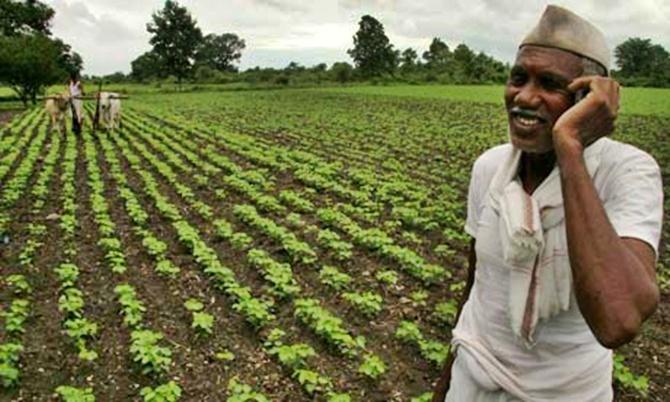
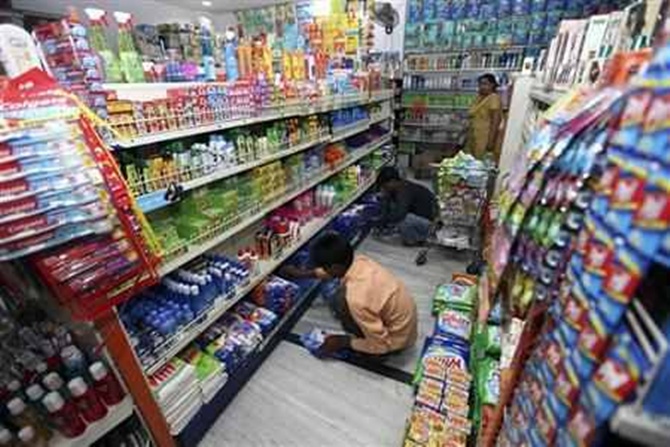
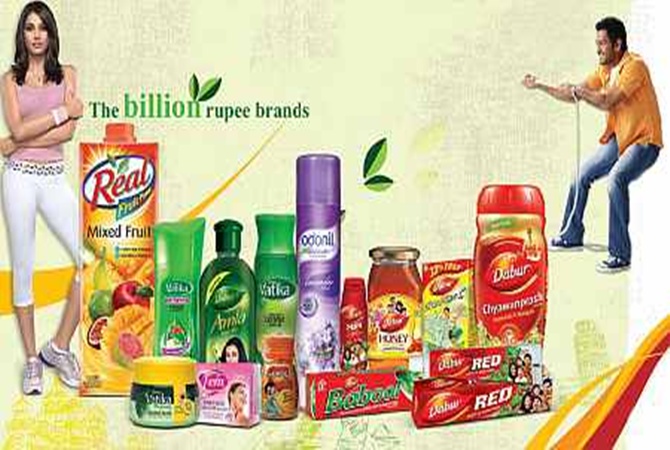
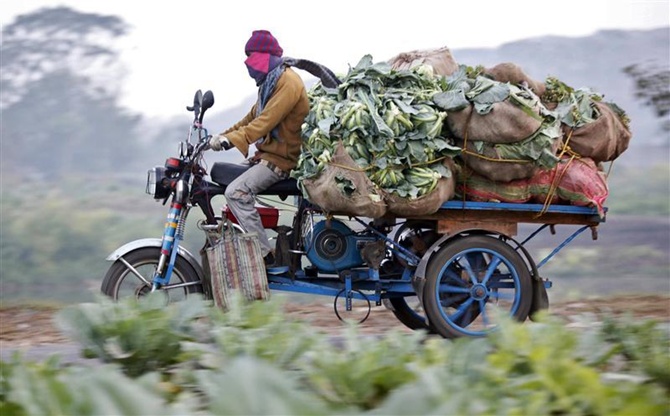
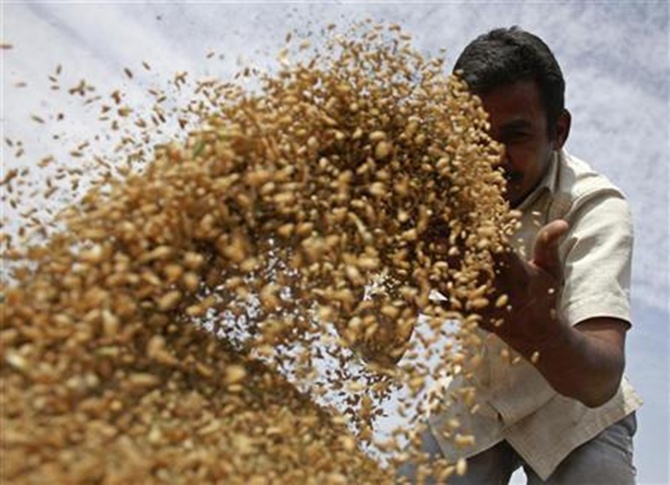
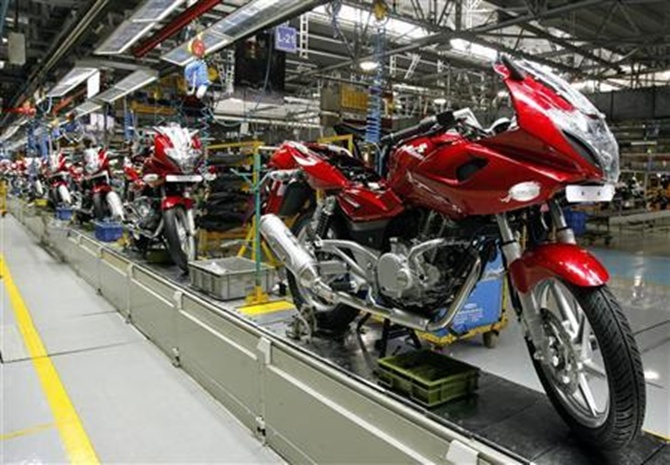
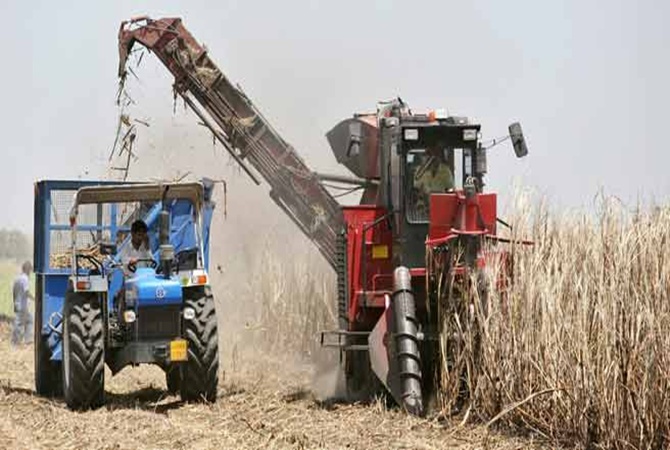
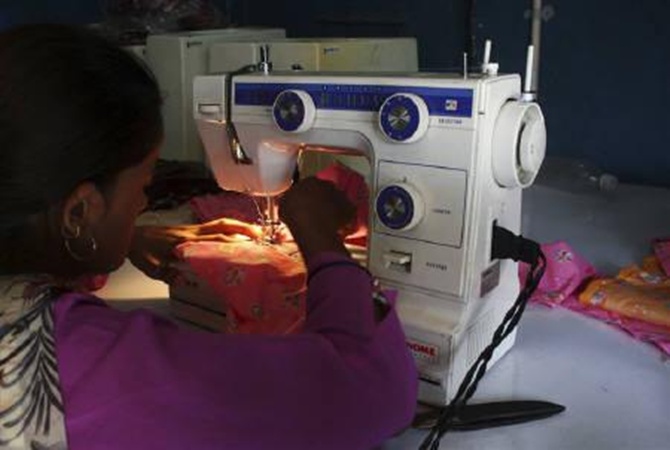

article